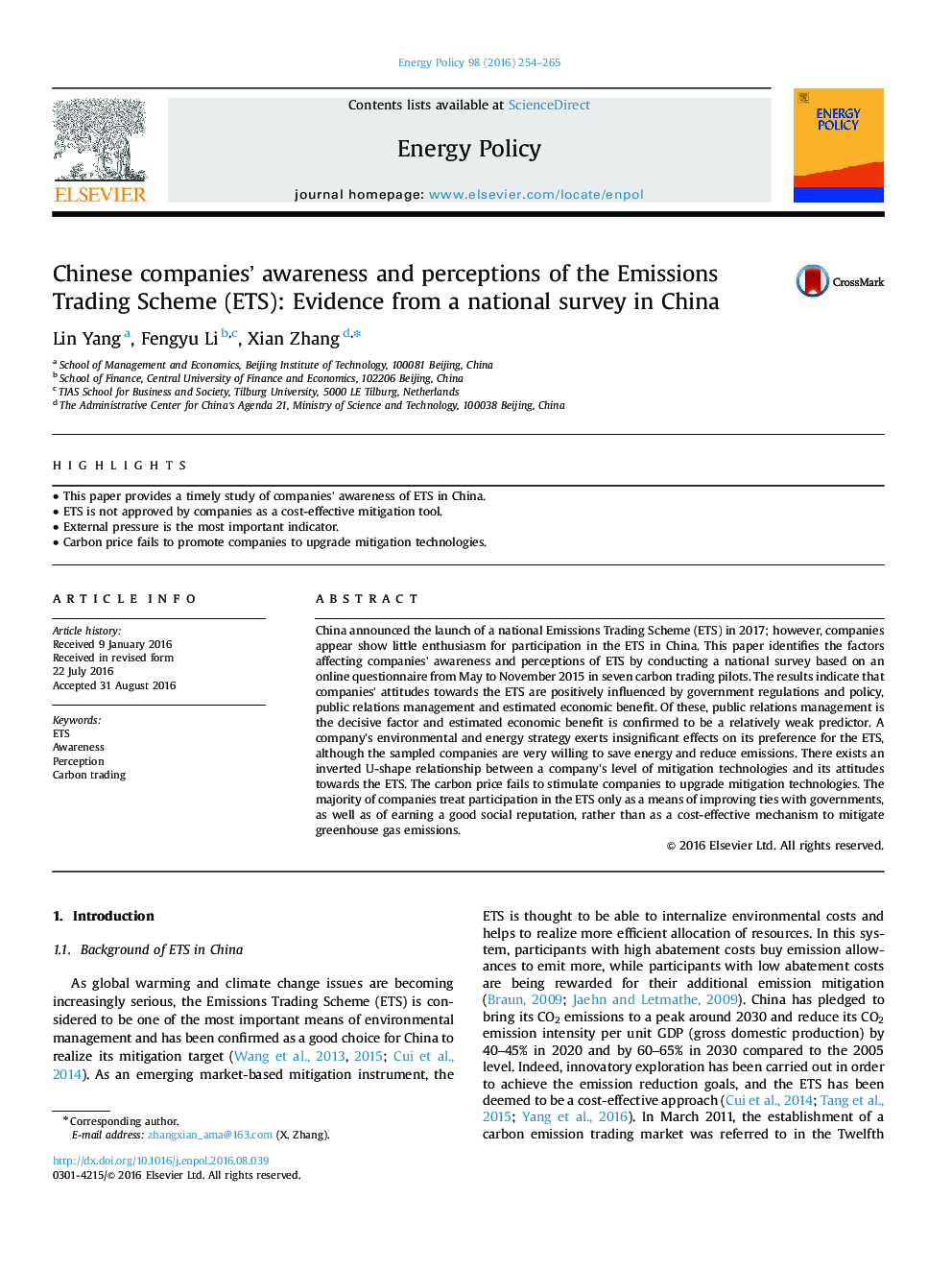| Article ID | Journal | Published Year | Pages | File Type |
|---|---|---|---|---|
| 7398520 | Energy Policy | 2016 | 12 Pages |
Abstract
China announced the launch of a national Emissions Trading Scheme (ETS) in 2017; however, companies appear show little enthusiasm for participation in the ETS in China. This paper identifies the factors affecting companies' awareness and perceptions of ETS by conducting a national survey based on an online questionnaire from May to November 2015 in seven carbon trading pilots. The results indicate that companies' attitudes towards the ETS are positively influenced by government regulations and policy, public relations management and estimated economic benefit. Of these, public relations management is the decisive factor and estimated economic benefit is confirmed to be a relatively weak predictor. A company's environmental and energy strategy exerts insignificant effects on its preference for the ETS, although the sampled companies are very willing to save energy and reduce emissions. There exists an inverted U-shape relationship between a company's level of mitigation technologies and its attitudes towards the ETS. The carbon price fails to stimulate companies to upgrade mitigation technologies. The majority of companies treat participation in the ETS only as a means of improving ties with governments, as well as of earning a good social reputation, rather than as a cost-effective mechanism to mitigate greenhouse gas emissions.
Keywords
Related Topics
Physical Sciences and Engineering
Energy
Energy Engineering and Power Technology
Authors
Lin Yang, Fengyu Li, Xian Zhang,
